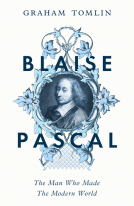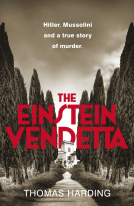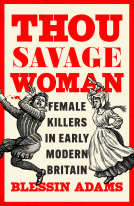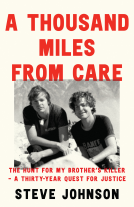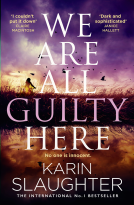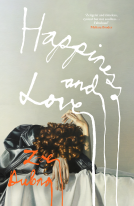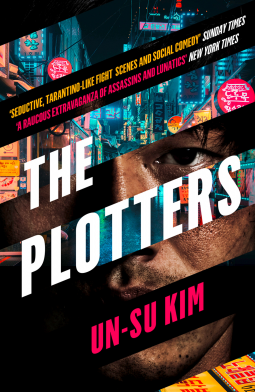
The Plotters
The hottest new crime thriller you’ll read this year
by Un-su Kim
This title was previously available on NetGalley and is now archived.
Send NetGalley books directly to your Kindle or Kindle app
1
To read on a Kindle or Kindle app, please add kindle@netgalley.com as an approved email address to receive files in your Amazon account. Click here for step-by-step instructions.
2
Also find your Kindle email address within your Amazon account, and enter it here.
Pub Date 12 Feb 2019 | Archive Date 25 Mar 2020
HarperCollins UK | Fourth Estate
Talking about this book? Use #ThePlotters #NetGalley. More hashtag tips!
Description
‘A work of literary genius’ Karen Dionne, internationally bestselling author of Home
‘A mash-up of Tarantino and Camus set in contemporary Seoul’ Louisa Luna, author of Two Girls Down
‘An incredible cast of characters’ Le monde
‘Smart but lightning fast’ Brian Evenson, author of Last Days
Plotters are just pawns like us. A request comes in and they draw up the plans. There’s someone above them who tells them what to do. And above that person is another plotter telling them what to do. You think that if you go up there with a knife and stab the person at the very top, that’ll fix everything. But no-one’s there. It’s just an empty chair.
Reseng was raised by cantankerous Old Raccoon in the Library of Dogs. To anyone asking, it’s just an ordinary library. To anyone in the know, it’s a hub for Seoul’s organised crime, and a place where contract killings are plotted and planned. So it’s no surprise that Reseng has grown up to become one of the best hitmen in Seoul. He takes orders from the plotters, carries out his grim duties, and comforts himself afterwards with copious quantities of beer and his two cats, Desk and Lampshade.
But after he takes pity on a target and lets her die how she chooses, he finds his every move is being watched. Is he finally about to fall victim to his own game? And why does that new female librarian at the library act so strangely? Is he looking for his enemies in all the wrong places? Could he be at the centre of a plot bigger than anything he’s ever known?
Advance Praise
‘An incredible cast of characters … a first-rate thriller’ Le Monde
‘A truly incredible and unique thriller, unlike anything I have read before’ Khurrum Rahman, author of East of Hounslow
‘With sharp humour and sparkling prose, Un-su Kim stylishly spins the tale of the extraordinary life of an ordinary assassin’ J.M. Lee, author of The Investigation
‘Make sure you leave the evening free, because you won’t want to put this book down when you start’ You-jeong Jeong, author of The Good Son
‘The Plotters is what would happen if you took the best South Korean crime cinema and distilled it into words. A smart but lightning fast thriller that keeps the pressure on to the very last page’ Brian Evenson, author of Last Days and A Collapse of Horses
‘In a terrifying, not unimaginable dystopian Seoul, guilds, plotters and assassins jostle for supremacy . . . Violent, clever and funny, I loved it!’ M. W. Craven, author of The Puppet Show
‘Imagine a mash-up of Tarantino and Camus set in contemporary Seoul, and you have The Plotters. Filled with unexpected humour and exquisite fight scenes’ Louisa Luna, author of Two Girls Down
‘A rich, funny, cynical Korean roman noir … a delicious surprise’ La Croix
‘More than a crime novel, more than violence and mystery, The Plotters promises both temptation and beauty’ Eka Kurniawan, author of Beauty is a Wound
'Kill Bill meets Murakami. Twisted and surreal, The Plotters is one of those rare books that will haunt you long after you've finished it. The writing is smooth, unhurried and often profound, even as it draws you deeper into the gruesome underworld of skilled contract killers. Chillingly, the violence is almost exquisite, a bloody art form’
D. B. John, author of Star of the North
Available Editions
| EDITION | Ebook |
| ISBN | 9780008315795 |
| PRICE | £3.99 (GBP) |
Featured Reviews
 Nigel M, Reviewer
Nigel M, Reviewer
The Plotters is set in North Korea where Renseng, an orphan, lives the life of an assassin for hire. What you don't expect is to end up empathising with him. But then this is an assassin who also reads Dostoyevski! Un-su-Kim spins out the tale of Renseng's life so beautifully that somehow his repeatedly killing people isn't what dominates this excellent novel. Rather it is the wonderful characters - such as Old Racoon,the librarian: Bear, the owner of a private crematorium; Hanja, the old barber who is the supreme assassin; - who leap of the pages and don't let you put the book down. OK, in some places it's truly grim, in others it's deeply touching, but, despite the brutal subject matter I nonetheless strongly recommend you read it. This is an author worth noting.
The story is set in South Korea about a Fraternity of assassins headed by a father figure who will accept an assignment for a suitable fee after establishing who, when, how and what is to be accomplished. Where upon the father will select what is a suitable person to do the deed. Interestingly the tale is centred on a young man who was recruited from a young age to be trained into the role. Just as empires rise and fall it seems that when assassins reach the end of their usefulness they will in turn be assassinated. What happens when it all ends makes a dramatic story.
 steve l, Reviewer
steve l, Reviewer
This book was different to the ones I normally read, but I enjoyed it a lot. The story was interesting and I enjoyed the description of Korea and the characters. Definitely recommended.
 Paul F, Reviewer
Paul F, Reviewer
"‘Reading books will doom you to a life of fear and shame. Now, do you still feel like reading?’"
The Guardian newspaper recently heralded Korean thriller writers as starting a new wave of translated popular fiction to succeed Scandinavian noir -https://www.theguardian.com/books/2018/mar/03/the-new-scandi-noir-the-korean-writers-reinventing-the-thriller - and the book on which they centered their article was this: 설계자들 by 김언수 (Kim Un-su). A more literal translation of the original title would be designers or architects, but the publisher and translator have gone with The Plotters.
The translation is from Sora Kim-Russell - the 7th author I have read through her translations, the others being Gong Jiyoung, Pyun Hye-Young, Hwang Sok-yong, Bae Suah, Park Hyoung-su and Shin Kyung-sook, and she is one of my favourite Korean-English alongside the Deborah Smith and Jung Yewon. Her translations tend to be towards the reads-naturally-in-English end of the spectrum, certainly as compared to Jung's, which makes this a highly accessible read, albeit one with an appropriate amount of local colour: e.g. as soon as page 2 we get a description of a man with 'a permanent grin, like a carved wooden hahoe mask' (https://en.wikipedia.org/wiki/Hahoetal).
As with two other books in this genre - The Hole by Pyun Hye-Young (my review https://www.goodreads.com/review/show/2252009529) and The Good Son by Jeong You-jeong (https://www.goodreads.com/review/show/2391289859) this isn't a type of book I would have naturally read in English: my interest is more in Korean literary fiction and in in pure literary terms, this is not, and does not purport to be, in the same class as Bae Suah, Han Kang or Hwang Sok-yong say.
Nevertheless it is a well-written book, humourous and quirky, with some fascinating characters, and one which rises above the constraints of genre by not following too linear or (except perhaps in the closing pages) predictable a path.
The subject of the novel, Reseng, is an assassin-for-hire, adopted as a young child by Old Raccoon who historically has run Korea's contract assassination business from The Old Library, one that developed in Korea after the end of military rule:
"What sped up the assassination industry was the new regime of democratically-elected civilian administrations that sought the trappings of morality. Maybe they thought that by stamping their foreheads with the words It’s okay, we’re not the military, they could fool the people. But power is all the same deep down, no matter what it looks like. As Deng Xiaoping once said, ‘It doesn’t matter whether a cat is white or black, as long as it catches mice.’The problem was that the newly democratic government couldn’t use that basement on Namsan to beat the crap out of the pains in the arse. And so, in order to avoid the eyes of the people and the press, to avoid generating evidence of their own complex chain of command and execution, and to avoid any future responsibility, they started doing business on the sly with contractors. And thus began the age of outsourcing. It was cheaper and simpler than taking care of it themselves, but best of all, there was less clean-up. On the rare occasion that the shit did hit the fan, the government was safe and clear of it. While contractors were being hauled off to jail, all they had to do was look shocked and appalled in front of the news cameras and say things like, ‘What a terrible and unfortunate tragedy!’"
Although with changing times, particularly the growing demand from the private and corporate sector, his business, and his life, are under threat from competitors.
In the novel's world, the assassination requests come into the contractors via the plotters of the book's (English) title, who themselves take orders from end clients. Reseng very much subscribes to Lee Harvey Oswald's 'patsy' (https://www.youtube.com/watch?v=sbR6vHXD1j0) theory of assassination:
"Whenever an assassination came to light, the first person the police looked for was the shooter. In the end, all they wanted to know was: ‘Who pulled the trigger?’ When they did find whoever pulled the trigger, they fooled themselves into thinking everything had been solved.
...
‘Plotters are just pawns like us,’ Reseng said. ‘A request comes in, and they draw up the plans. There’s someone above them who tells them what to do. And above that person is another plotter telling them what to do. You know what’s there if you keep going all the way to the top? Nothing. Just an empty chair.’"
But as the novel begins, Reseng is starting not to follow the rules. Sent to kill a former North Korean general, and someone who was himself a senior plotter in the South, he ends up having dinner with him, before completing his task. And when he finds a small bomb planted in his toilet:
"‘This would’ve blown your arse off.’
‘That tiny thing?’
‘The pressure is higher inside a toilet bowl. It’s like squeezing a firecracker in your hand when it goes off. Basically, when you sit down to take a shit, your arse forms a seal over the hole, creating the perfect conditions for this bomb to do maximum damage.’
‘Are you saying it could have killed me?’
‘Ever seen anyone survive without an arse?’"
he gets caught up in a world of memorably eccentric characters and complicated plots. The chief suspect for the toilet bomb for example "was working at a convenience store. After greeting customers with an overly loud ‘Welcome!’ she hit them with a bubbly ‘Help you find something?’ or butted in with a nosy ‘Ooh, I buy these biscuits too!’ Most customers ignored her. But she laughed anyway, indifferent, and kept tossing jokes at them while clacking away at the register, picking up items from the counter with an exaggerated sweep of her arm. When there were no customers, she chattered nonstop on the shop telephone, or cleaned the shelves and reorganised the already perfectly arranged items. Chatting or cleaning , cleaning or chatting. She looked like a child with an attention-deficit disorder.
And at one point he finds himself wondering what he has got involved in:
"Plotter, cross-eyed librarian, knitting-shop owner— what on earth were these three mismatched women doing together? And in this ridiculous shop, of all places, watched over by Papa Smurf and Winnie-the-Pooh and all the Teletubbies?"
Kim is very effective at creating these memorable characters, although one criticism would be that he doesn't always follow through or suggest any deeper significance. For example, Old Raccoon runs his business out of a library:
"he found it hard to believe that this quiet place had headquartered a den of assassins for the last ninety years. He marvelled at the thought that all those deaths, all those assassinations and unexplained disappearances and faked accidents and imprisonments and kidnappings, had been decided and plotted right here in this building. Who’d chosen this place from which to orchestrate such abominable acts? It was madness. It would have made more sense to set up camp in the office of the National Dry Cleaners Union, or the office of the Organising Committee to Revitalise Poultry Farming."
And Old Raccoon has a one-book-in, one-book-out policy to stocking his shelves that very much reflects my own:
"Old Raccoon used to order new books regularly, but would throw out the same number just as regularly ... When their time came, Old Raccoon placed a black strip around the discards. It was his own special form of sentencing, a funeral procedure for books that had reached the end of their life. The same way ageing assassins were added to a list and eliminated by cleaners when their time came. Of course, a book’s life span was determined by Old Raccoon alone, and neither Reseng nor the librarians could understand why certain books had to be tossed. The books with black bands were gathered by the librarian and stacked in the courtyard to be burned on Sunday afternoons, the librarian’s day off. Old Raccoon could have sold them to a secondhand bookshop or even to a recycler, but he insisted on burning them."
Old Raccoon himself only read two of the books, alternating between an English and German encyclopedia, but, to his horror (as per the opening quote) Reseng teaches himself as a child to read, and becomes an avid bibliophile:
"The cabinet under the sink was stacked with instant noodle cups, and next to his pillow and on the table were the books that he’d either brought with him from Seoul or bought at the local bookshop : Albert Camus’ Summer and The Plague, Italo Calvino’s The Baron in the Trees, Martin Monestier’s Suicides, Andrew Solomon’s The Noonday Demon."
which is all wonderful colour - but doesn't then seem of any great significance in the later plot or character development.
Nevertheless, an atmospheric and enjoyable read, rather too quirky to count as noir.
As for a rating - a tricky one. For personal appreciation, given my literary tastes, 3 stars but as a recommendation for other, particularly those seeking an alternative to Stieg Larrson clones, a solid 4.
Thanks to the publisher's via Netgalley for the ARC.
 Paromjit H, Reviewer
Paromjit H, Reviewer
This is a beautifully translated addition to the emergent genre of Korean Noir, it is offbeat, full of wit, irony and black humour, gritty and brutal but never less than engaging and gripping, set in Seoul. It this story of a quagmire of plotters, we have our anti-hero an assassin, Reseng, inescapably destined to become an exceptional hitman after being raised by Old Raccoon. You cannot help but be drawn into his life and character despite the brutality of his occupation. Contract killings are managed, planned and plotted at The Library of Dogs, in the business of assassinations. It is utilised by the criminal community and has close political connections with a corrupt government that cannot quite deal with being truly democratic and has found alternative ways of dealing with 'problems' through the route of outsourcing. The police seek the person who pulled the trigger rather than investigating below the surface, content with the obvious.
Reseng, a lover of literature, lives with his cats, dealing with his violent occupation by finding solace in drinking beer. Then he goes off script on a killing assignment, veering off the straight and narrow path of following orders and his life begins to move into unexpected directions with the strange and bizarre happenings, such as explosives in his toilet, labyrinthian plots galore and rivalries. There is a pet cemetery owner, Bear, who Reseng utilises, a 'barber', Hanja, who is more than what he seems and what exactly happens to old assassins? This is a richly detailed intelligent satire with quirky beats, and full of atmosphere. The characterisation is simply fabulous, none more so than our central protagonist and the shadowy underworld is portrayed with panache. I look forward to reading more from this author! I recommend this to those looking for something different in the crime fiction genre. Many thanks to HarperCollins 4th Estate for an ARC.
A novel where "assassination guilds compete for market dominance" and which feels like an almost surreal combination of Tarantino and Murakami's narratives; the way the characters express themselves, their logic and reactions, are emphatically Asian, which means "not Western", whilst the plot is a classic thriller, full of eerily ironic discussions of assassination, of death, of body disposal, of corruption, of honour.
The Plotters did not turn out to be the standard thriller with an Asian bent that I expected. Instead, it is so much more. The writing and translation are both beautifully done, The language is rich with powerful imagery, verging on poetic at times.
While there is an overarching plot, the book reads more like a series of vignettes telling the story of the life of assassin, Reseng. The book is peppered with deeply engaging characters and strange events. It is dark, funny, sad and most of all, compelling. An unusual and brilliant read.
 Reviewer 447472
Reviewer 447472
I won't lie, I found this book a bit baffling in the start but then when the events picked up, and I got what was going on it became so anti-climatic and interesting.
Would it be awkward if I define it as "Tarantino meets David Lynch"? The whole story, characters, events are bizarre and different, but not in a bad way. There is violence, sadness, a well-painted atmosphere, solid characters. If you're into cat/mouse game type of crime novels and fancy a quirk don't give this a miss. Second Korean crime fiction I have read this year and would love to read a third one.
 Alan M, Bookseller
Alan M, Bookseller
‘Reseng had no rules. Not having rules was his only rule.’
Imagine a mash-up of a book-loving assassin, wry dialogue that could have come out of Hammett or Chandler, Tarantino-esque violence, an ending worthy of Luc Besson’s ‘Leon’ and a storyline fit for Jason Bourne…. and you get ‘The Plotters’.
In a Seoul where murder is business, and Plotters control who lives and who dies by ‘outsourcing’ to assassins for hire, Reseng is one of the top killers. As those close to him start to die he becomes involved in a plot way more complicated than he could imagine. What happened to the cross-eyed librarian? What has the convenience store worker have to do with it all? Will Old Raccoon, who rescued Reseng from an orphanage as a young boy, see off the challenge to his domain by the slick Hanja? Who is the Barber – and is he actually a barber?? You can’t really go into plot details without spoiling it, so I won’t – suffice to say it has plenty of twists and turns.
I thoroughly enjoyed this smart, clever thriller. It seemed in part an homage to the genre itself, part satire on modern Korea and its drive towards wealth and capitalism. The characters were developed enough for you to be interested, and Reseng himself was someone that, unwittingly or not, you find yourself rooting for. It is very definitely a page-turner as the action ramps up towards a (literally) explosive ending. Clever, funny at times, very dark at others; Kim is certainly a writer to watch in an ever-increasingly impressive emergence of Korean writers being translated into English. A very definite recommended read.
(With thanks to the publisher and NetGalley for an ARC in return for an honest and unbiased review.)
 Leslie G, Book Trade Professional
Leslie G, Book Trade Professional
Strangely fascinating - the main shooter/assassin-for-hire was raised from an orphanage to become the weapon of a government hit-squad - secretly deployed we are told when the government went democratic but still wanted to kill off opponents - and they are all marked! The greatest of them all goes AWOL after letting a prostitute live after being ordered to kill her ... meanwhile a rising plotters' team if beginning to horn in on Reinsen's boss - and he taps our man. The opening scenes perfectly reveal the sociopathic, flat emotion of this killer - as we follow his trail through a hunt for that rogue assassin - a friend of his, who he lets live when he has the chance to make a name for himself - we wait for his emotional skin to be pierced - and it is! And it's whammo - I do not think this is for the faint hearted because we get very close to the protagonist - and with the flavourful atmosphere of a state where you are always looking over your shoulder for an enemy, it all adds up to a peculiarly amoral atmosphere ..intriguing like crazy.
 Carol H, Reviewer
Carol H, Reviewer
A very unusual book set in South Korea, in a world so different to western expectations this is a tale about assassins. Yet these assassins are normal people, except for the way they earn their living.
Although the main protagonist murders people he is a very sympathetic character.
Quite a surreal tale.
